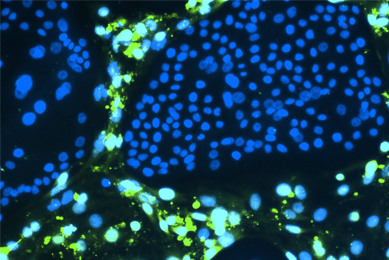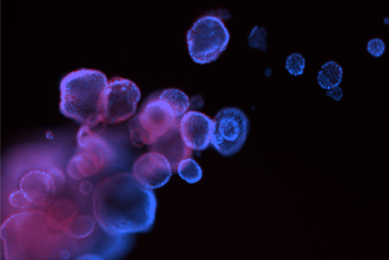A Turning Point in Biomedical Research
The FDA’s new policy allows for non-animal data—including organoids, tissue chips, and computational models—to be used in drug development, particularly for monoclonal antibodies.1 Simultaneously, the NIH is directing funding toward human-relevant models to improve the reproducibility and translational value of biomedical research.2
These initiatives signal a future where human biology is the gold standard and where ethical, efficient, and scientifically robust alternatives to animal testing are not just encouraged but expected.
ATCC: A Trusted Scientific Partner
For more than a century, ATCC has been a cornerstone of biological research, providing scientists with the tools they need to push the boundaries of discovery. Today, we support researchers in the application of the 3Rs by offering:
- Human-derived cell lines and organoids that serve as direct replacements for animal models.
- High-quality, authenticated materials that reduce experimental variability and the need for repeat studies.
- Advanced 3-D models and co-culture systems that refine experimental design and more accurately mimic human physiology.
Our Microphysiological System (MPS) department develops or validates cells and other biologicals that can be directly applied in multiple MPS technologies using the same medium, cells, and extracellular matrix, facilitating usability. MPS is one of the New Approach Methodologies (NAMs) listed by the FDA that can enable the reduction, refinement, or potential replacement of animal models.
By enabling researchers to adopt NAMs, ATCC supports the global scientific community in reducing reliance on animal testing and enhancing the quality and relevance of scientific outcomes.
Supporting the Scientific Community
ATCC is a partner in progress. ATCC is well-positioned to continue collaborating with the U.S. Food and Drug Administration (FDA) and other key federal agencies to accelerate the development, validation, and adoption of MPS. These partnerships are central to advancing next-generation tools that enhance the discovery, evaluation, and regulatory approval of new treatments and vaccines, all while supporting the broader shift toward human-relevant, non-animal research methodologies. We collaborate with academic institutions, the US Government, biotech companies, and regulatory agencies to:
- Educate researchers on the implementation of human-based models.
- Develop solutions tailored to specific research needs.
- Promote open science through data sharing, training, and global access to standardized biological materials.
A Shared Vision
The 3Rs are not just principles, they are a call to action. ATCC aids the scientific community in embracing a future where research is more humane, more predictive, and more impactful. As the demand for human-relevant models grows, ATCC remains committed to providing the tools, expertise, and leadership needed to advance this transformation.
Microphysiological Systems (MPS)
Discover how ATCC is transforming drug development and our understanding of human diseases through MPS
Meet the author
Carolina Lucchesi, PhD
Principal Scientist, BioNexus, ATCC
Carolina Lucchesi is BioNexus Foundation Principal Scientist leading the Microphysiological Systems program at ATCC. Dr. Lucchesi received her PhD in Cellular and Molecular Biology from the University of Campinas in Brazil and has over 20 years of experience in Tissue Engineering and Organ-on-Chip technology. In her current role, Dr. Lucchesi leads the MPS program bringing new capabilities in the use of advanced 3D models and developing existing and new content to be applied in state-of-art technologies.
Explore ATCC's human cell models

Human Cancer Models Initiative (HCMI)
ATCC is the exclusive distributor of the Human Cancer Models Initiative (HCMI) models. See the models that include common and rare examples of cancer from numerous tissues.
MoreHepatoXcell™ Primary Human Hepatocytes
Discover how HepatoXcell™ provides a solution for your predictive drug development and toxicity testing.
More
Cell Models
Cell models are widely used in toxicology, immunology, and cancer pharmacogenomic studies to predict clinical response and to identify novel mechanisms associated with variation in drug response.
MoreReferences
- US Food and Drug Administration. FDA Announces Plan to Phase Out Animal Testing Requirement for Monoclonal Antibodies and Other Drugs. Published by U.S. Food and Drug Administration on April 10, 2025. Available at: https://www.fda.gov/news-events/press-announcements/fda-announces-plan-phase-out-animal-testing-requirement-monoclonal-antibodies-and-other-drugs. Accessed June 2025.
- National Institutes of Health. NIH to Prioritize Human-Based Research Technologies. Published by National Institutes of Health on April 29, 2025. Available at: https://www.nih.gov/nih-prioritize-human-based-research-technologies. Accessed June 2025.